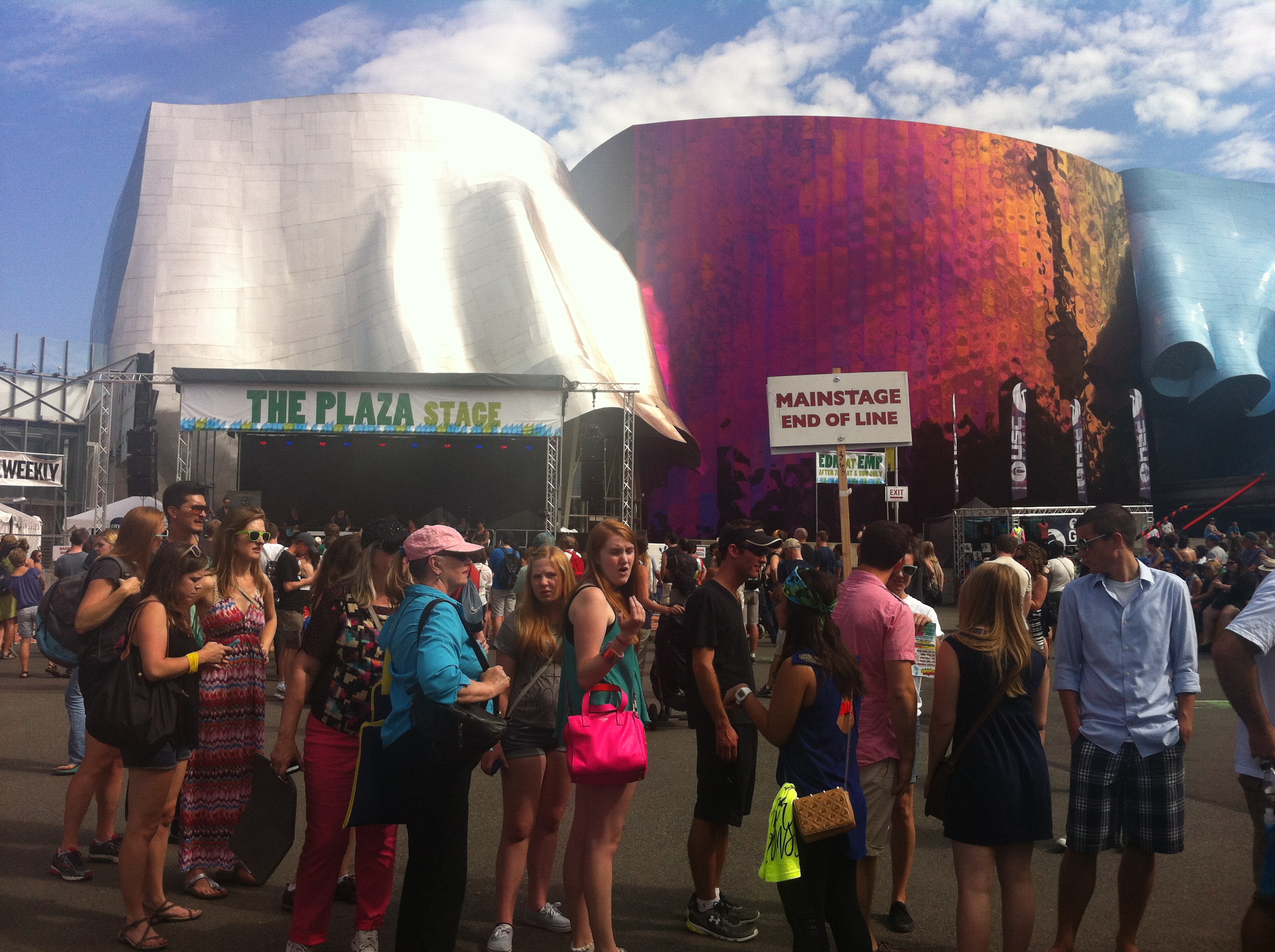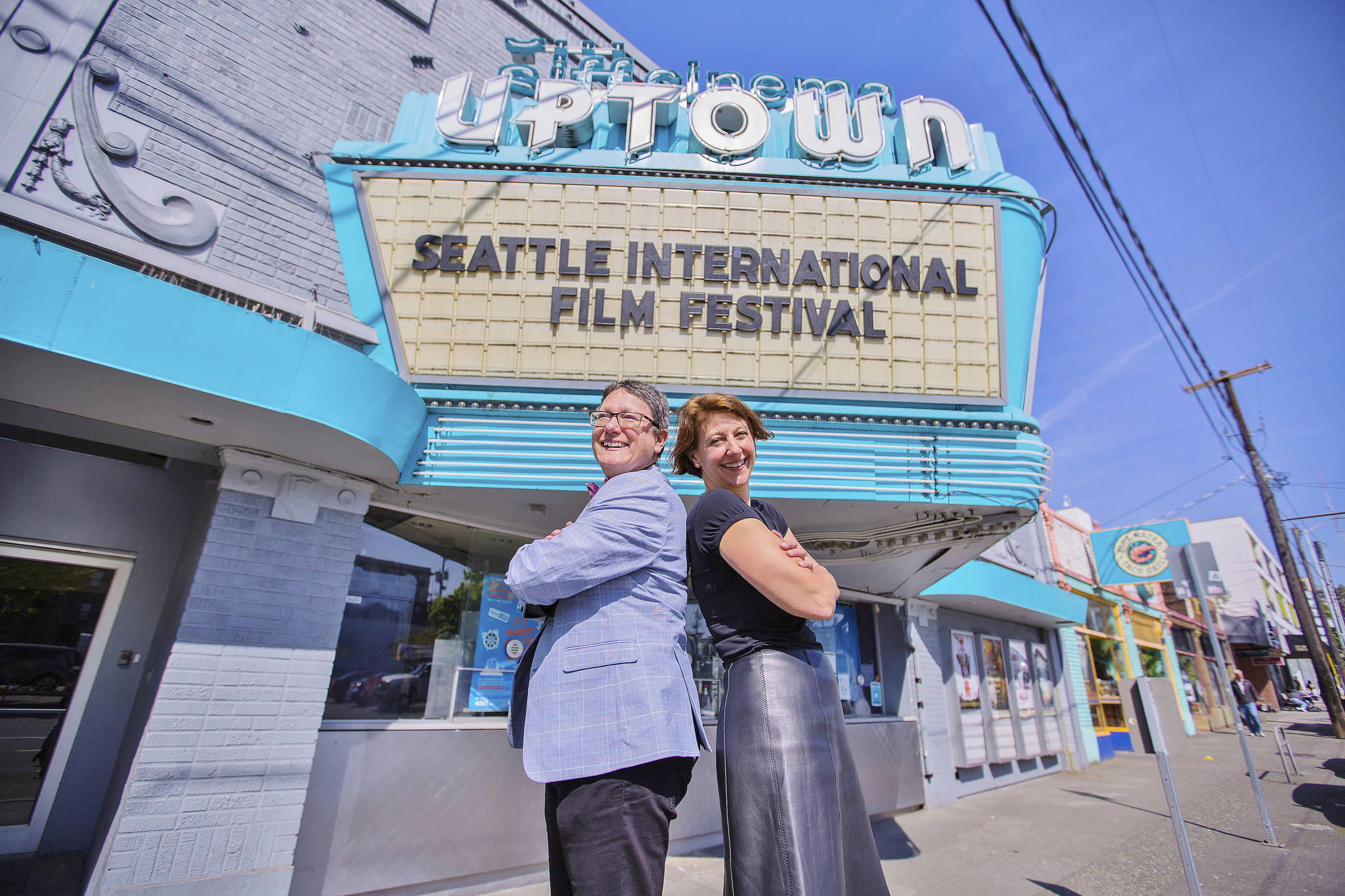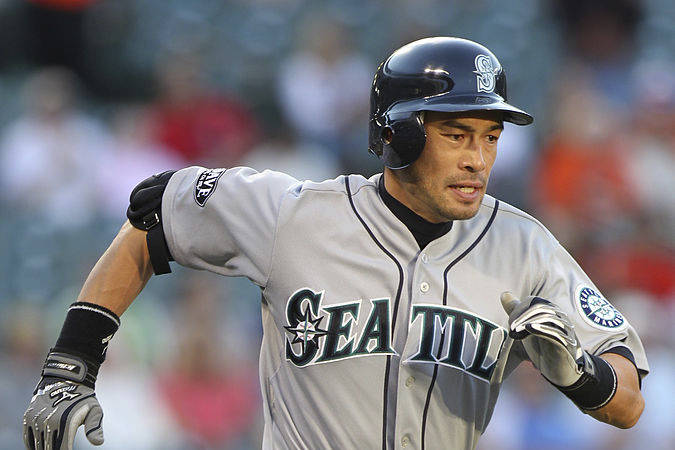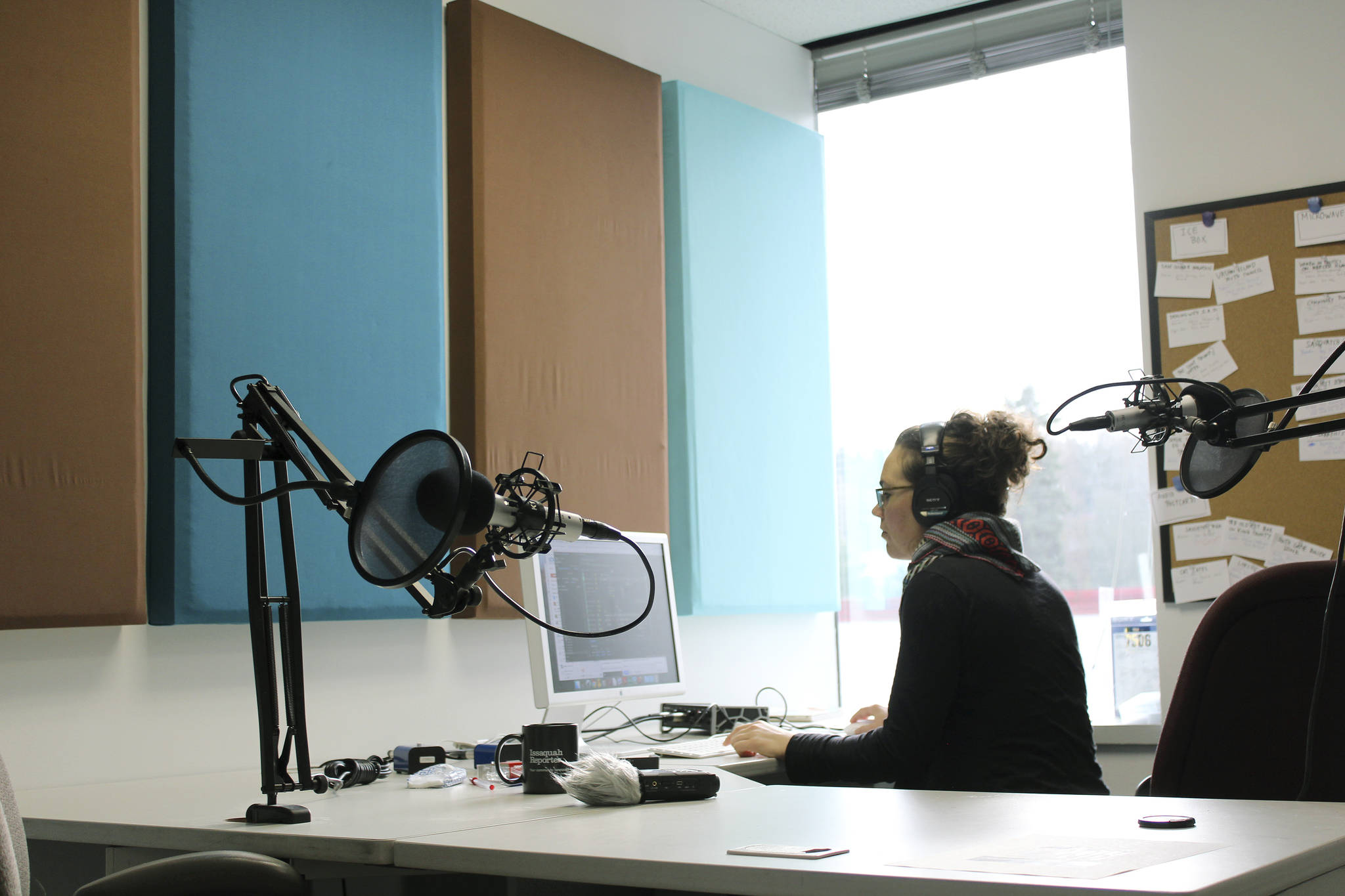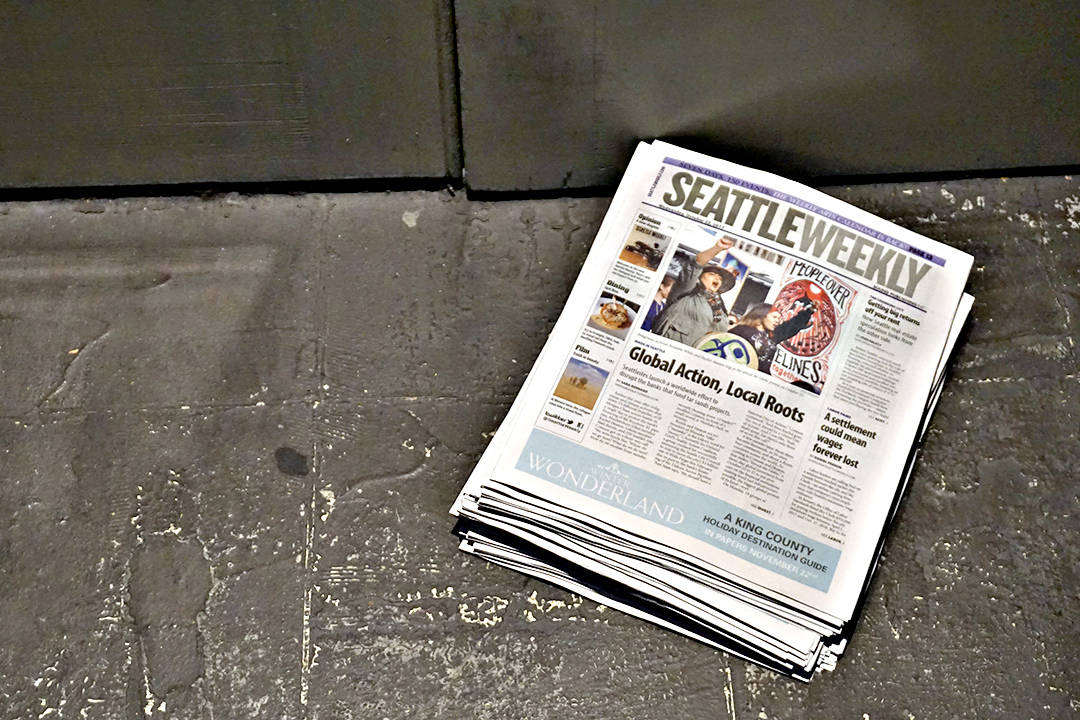The line for the Mainstage snaked through the Seattle Center grounds, around Key Arena, past the TuneIn Stage, right by the street performer adorned in shards of broken glass, past the radio station tent pumping out Robin Thicke’s “Blurred Lines”—to which everyone, the enlightened and the oblivious, bobbed their heads—around the corner of the Armory, past the kid’s play area and, finally, to the sweltering asphalt right in front of the Plaza Stage. It was a long line.
The attraction was fun., whose mainstage set was schedule to begin in one-half hour.
“Are we going to make it in?” asked a teenaged fan, a friend at her side.
“You’ll probably make it,” replied the worker holding the “END OF LINE” sign. “It depends on how many Tegan and Sara fans stay between sets.” The girls decided to stick it out. They turned and considered the Plaza Stage, upon which a group of artists were taking turns sharing their art. This was the Round, a monthly event hosted by the Fremont Abbey that was in the middle of celebrating its 100th show.
A poet named Matt Gano was at the mic.
“Horsepower throws the lever to my eyelids,” he was saying (according to my admittedly sloppy transcription). He continued: “I wake with diamonds in my eyes and forget to lay down my dream. I forget all the things that I considered, but I know everything that is new is really old, ancient even.”
I tried to relax my shoulders and listened as he spoke of a journey through his dreams and to some other side where love consumed all. I attempted to give myself over to the poem, but my brain wouldn’t allow it; it was preoccupied with the long line behind me, attempting to find some connection between that snaking horde of pop music fans and this elliptical dream poem. Nothing was coming to mind as Gano spoke his final verse.
“The love, the horses in our sleep, gallop out from the mind. We are hard, and covered in soot, but she wants us anyway.”
The gathered audience of five hundred applauded and soon the next artist, Mary Lambert, began playing a song. Wondering if the fun. fans might recognize Lambert from her work on Macklemore’s “Same Love,” I turned to take in their reaction. They were gone, along with the rest of the line and the helpful sign-holder. Apparently Tegan and Sara had finished their set and the crowd had moved on.
Back on the Plaza Stage, Shelby Earl played her definitive work, a brief and impassioned ode to artistic resolve called “Burn the Boats.”
“Our lungs were full of ashes and our souls were colored oil,” she sang over a simple acoustic guitar line, “but somehow we were dancing. We always know the truth. If we pull the boats ashore and lit them all afire, sent them to the ocean floor, we would be home.”
The rest of the artists on stage listened intently and smiled widely when Earl finished plucking at her strings. A few minutes later, all the artists joined in on a cover of Neil Young’s “Vampire Blues.” Earl and Lambert traded off on vocals. It was a goof, a joyful moment likely inspired by the fest’s strange zombie theme. Other than that, it didn’t appear to have any deeper meaning. And that was fine.
